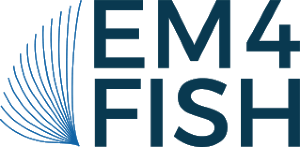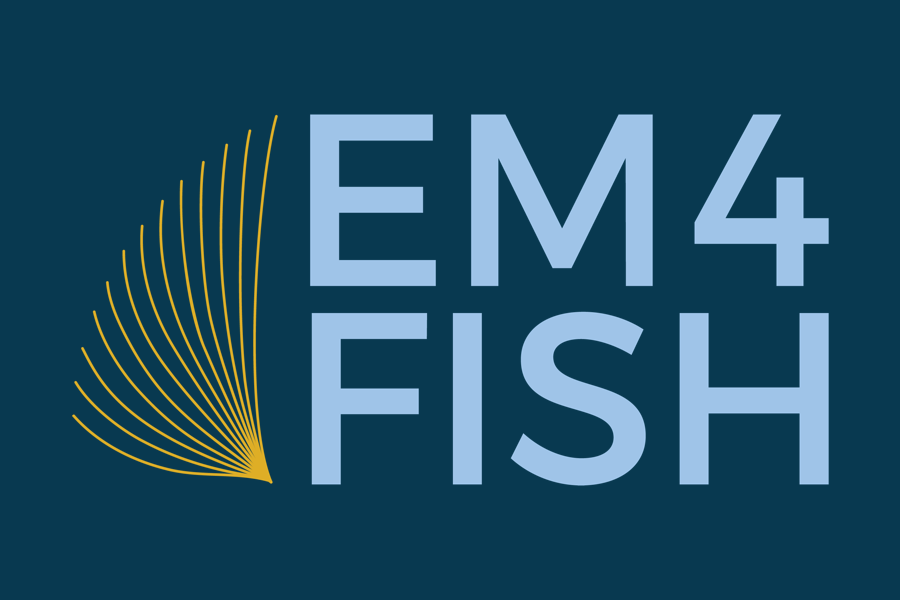Foundation awards 12 grants to improve fisheries data collection, storage, and management
WASHINGTON, D.C. (January 9, 2017) – The National Fish and Wildlife Foundation (NFWF) today announced more than $3.59 million in grants to implement voluntary and cost-shared electronic monitoring and reporting programs and data system developments in fisheries in 12 states and two U.S. territories. The grants will generate more than $3.15 million in matching contributions for a total conservation impact of more than $6.75 million.
The grants were awarded through the Electronic Monitoring and Reporting (EMR) Grant Program, a partnership between NFWF, the National Oceanic and Atmospheric Administration (NOAA), the Gordon and Betty Moore Foundation, and the Kingfisher Foundation. This year’s projects will modernize fishery data systems and implement regional-scale electronic monitoring and reporting solutions for the commercial and recreational sectors.
“NFWF is excited to support projects that work with fishermen on a voluntary basis across the country to adopt and expand the use of effective electronic technologies,” said Jeff Trandahl, executive director and CEO, NFWF. “The grants announced today will not only increase the number of vessels using electronic technologies but also strengthen data management, review and storage in ways that will promote sustainable fisheries management.”
The 12 projects receiving grants will address monitoring and data management needs in priority fisheries in Alabama, Alaska, Florida, Louisiana, Maine, Massachusetts, Mississippi, New Hampshire, New York, Rhode Island, Texas, Washington, Puerto Rico and the U.S. Virgin Islands. The projects will move these fisheries toward implementing electronic monitoring and reporting, explore the use of electronic technology to address critical fishery monitoring needs, and enhance data management systems to improve the consistency, quality and usability of fishery information.
Complete list of grants awarded
“We appreciate our partners’ investment in U.S. fishermen. Electronic monitoring and reporting technologies can improve data collection methods, helping us make sound, science-based management decisions for our fisheries as well as potentially expand business opportunities by providing cost-effective monitoring alternatives for our fishermen,” said Chris Oliver, Assistant Administrator for NOAA Fisheries.
Projects in New York and Washington will advance electronic monitoring and reporting tools to improve data accuracy for commercial and tribal fishers. One project in New England will explore innovative approaches to fisheries data review, such as developing open source review tools resulting in a semi-automated video review for the New England groundfish fishery. Other projects will enhance ongoing pilots including one in the Gulf of Mexico that will expand the use of electronic logbooks resulting in more accurate data for fishery managers, and one in Alaska that will improve electronic monitoring in longline and pot fisheries.
“These grants will help modernize fisheries data and monitoring approaches so that they work better for fishermen, provide more timely information to scientists and managers, and ultimately help make fisheries more sustainable.” said Rachel Strader, Program Officer, Marine Conservation Initiative.
The EMR Grant Program was established in 2015 to advance NOAA’s sustainable fisheries goals to partner with fishermen and other stakeholders, state agencies and Fishery Information Networks to systematically integrate technology into fisheries data collection and observations. To date, the program has awarded more than $8.8 million to 25 projects in the Pacific, North Pacific, South Atlantic, Caribbean, West Pacific and Mid-Atlantic regions, as well as New England and the Gulf of Mexico.
A complete list of the 2017 grants made through the Electronic Monitoring and Reporting Program is available here.

